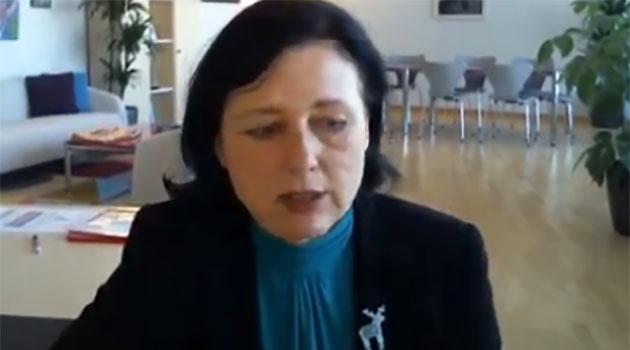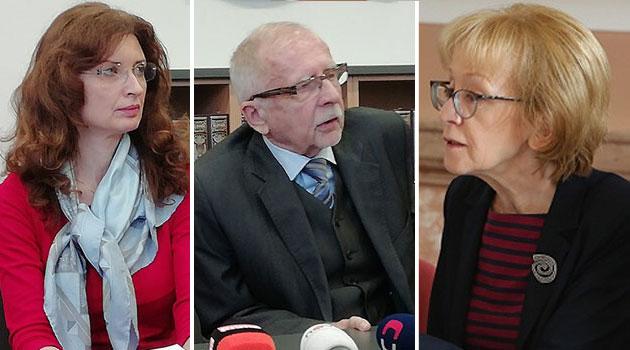EU Commission: States have to show improvement for Roma if they expect to draw funding

The European Commission (EC) has adopted a new 10-year plan including proposed recommendations to the Member States on improving the lives of Romani people in the European Union. According to the EC, it is necessary to concentrate on seven key areas in that regard: equality, inclusion, participation, education, employment, health care and housing.
Moderator Jarmila Balážová has interviewed the Vice President of the European Commission for Values and Transparency, Věra Jourová, about why the plan has come about and how the EC will now proceed. “Many problems that we wanted to solve have not been solved. The situation has not improved. On the contrary, the atmosphere has deteriorated in society, the hatred against Romani people that we are seeing on social media has increased. Not enough is being done to combat crime that targets Romani people because they are an ethnic minority. It’s a big disappointment and rather a big source of frustration. For that reason, I wanted the new strategy to be concentrated on practicalities, to a great degree. It must take more into account what I have long been saying – that everything we will be planning that will affect Romani people must not just be about Romani people and for Romani people, but planned together with Romani people,” Jourová told ROMEA TV.
The EC is attempting, through different instruments, to compel the Member States to fulfill the commitments made in their own national strategies in this area. Jourová said the most effective tool is the area of EU financing itself.
If the Member States draw EU subsidies to improve the situation of marginalized groups, they will have to fulfill the aims and commitments of their national strategic plans on Roma. “We have several opportunities that should all function simultaneously. First we said the states should have their own national strategies. Now, in March, the Council on Employment and Social Policy will be meeting about this, and I hope that it will approve this approach and that we will confirm that each state will have its own such strategy and that it will report on how it is being fulfilled every two years, on what has been achieved on the basis of measurable results,” she told ROMEA TV.
Jourová went on to say that the drawing of financing would be tied to these reports by the Member States and their measurable results. “Then there is the money here that you mentioned. We have many conditionalities in the terms of EU financing. One is that if states want to draw money for the integration of marginalized groups and the improvement of employment rates, etc., the state must have a functional strategy and fulfill its plan. So you could say we also have a means of financial coercion,” she believes.
The EC is also concentrating on how the Member States uphold EU legislation. “There is yet another legislative opportunity there, which means that if states don’t uphold European legislation about discrimination or antidiscrimination, then naturally we are able to launch infringement proceedings. At the moment we have three such proceedings open related to children’s education in the Czech Republic, Slovakia and Hungary, we follow the situation there and consult on it,” the Commissioner said.
Jourová said she considers the biggest, still-persisting problem in the Czech Republic associated with the Romani minority to be the education of Romani children. “I’d say that what is the most burning issue in the Czech Republic, at least based on the sources of information that I have, is the education of children. There is still not enough attention being paid to making sure that no Romani children end up at an early age on a dead-end street and that each Romani child has prospects for a solid education and a good life,” she said.
The biggest problem, according to the Commissioner, is children being incorrectly diagnosed and then assigned to special needs education. The EC is discussing this in its meetings with the Czech Education Ministry and demanding improvement in equal access to education by Romani children in the Czech Republic.
“I believe there is a lot of room for improvement. In the Czech Republic the Education Ministry has done a lot with respect to legislation, a law has been adopted, a decree has been adopted, but now we need these things to manifest in practice so we can see better prospects for better education for Czech Romani children,” the Commissioner said.
Another of the biggest problems in the Czech Republic mentioned by Jourová, compared to other key states in the EU, is the area of unemployment. “I believe we still see that for Romani people it is far harder to find work, that direct and indirect discrimination, stereotypes, prejudices operate there, and that it is simply far more complicated. To get a job that will also be decently paid determines the level of one’s housing and health care,” the Vice President for Values and Transparency concluded.
